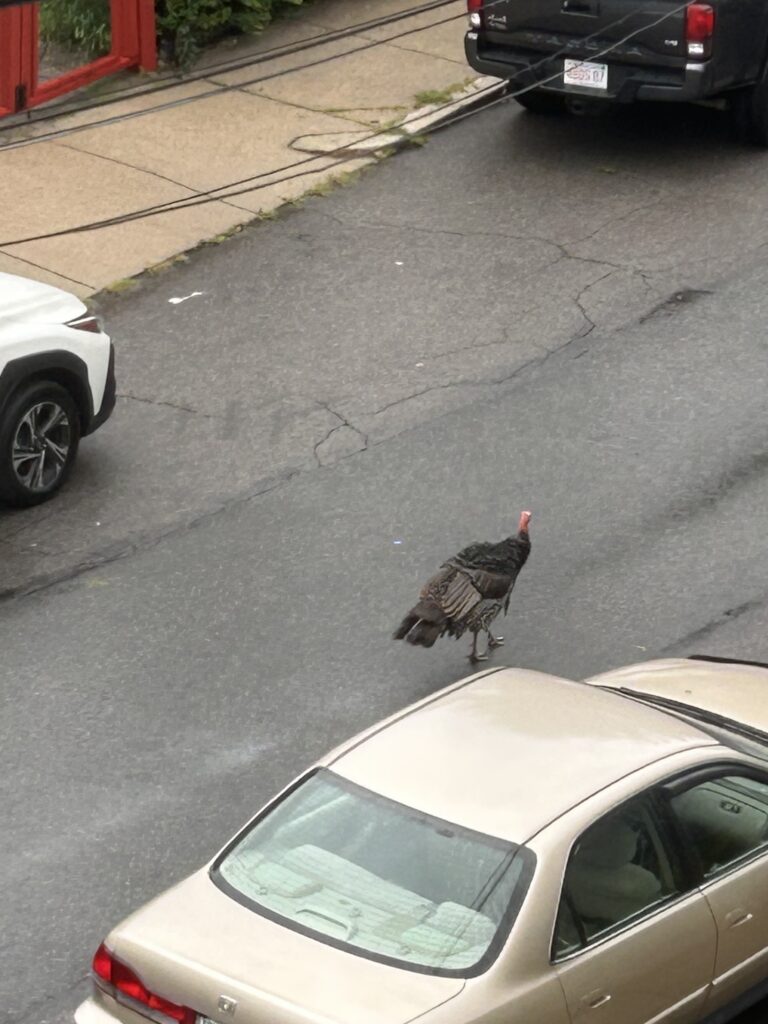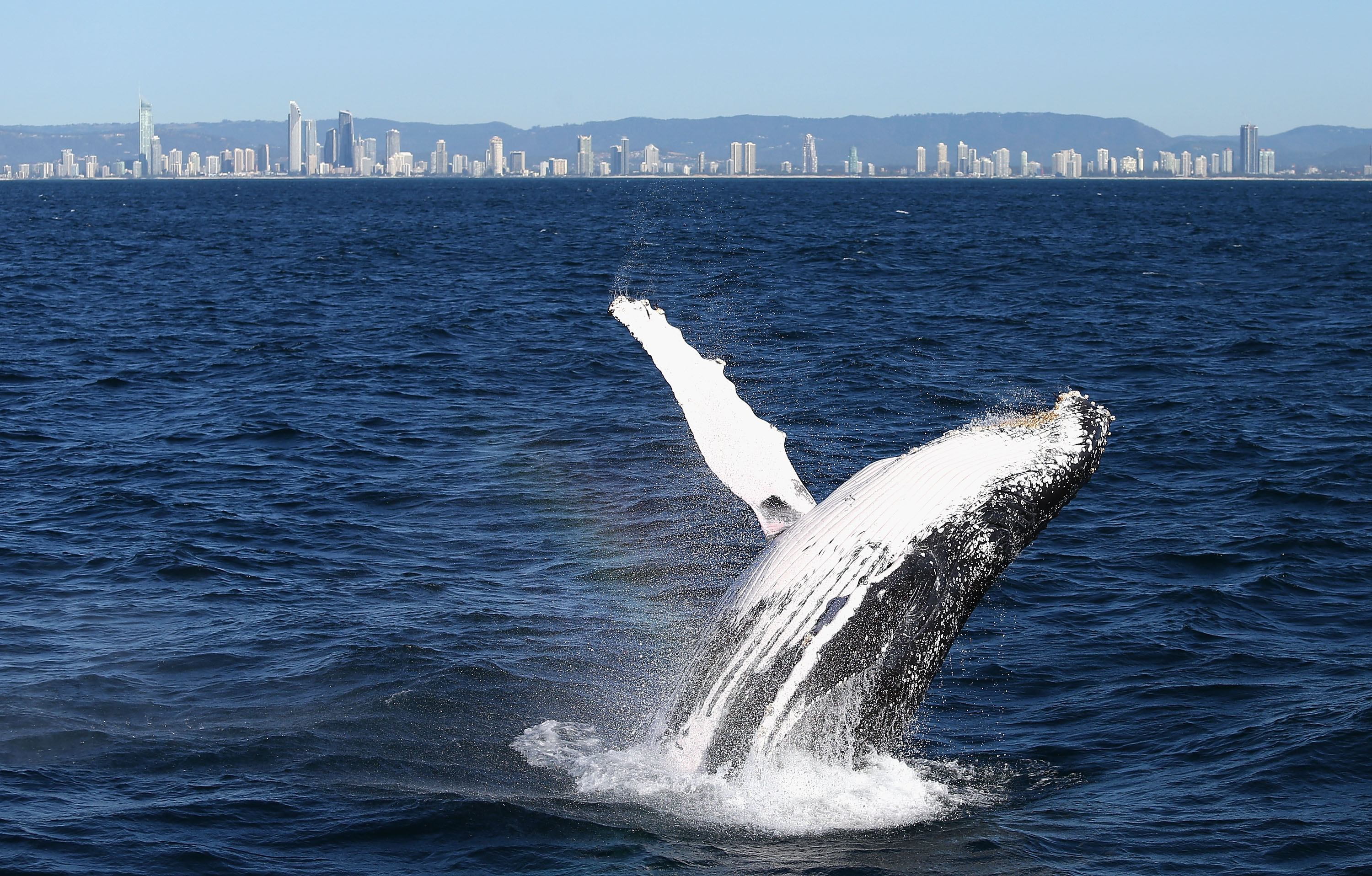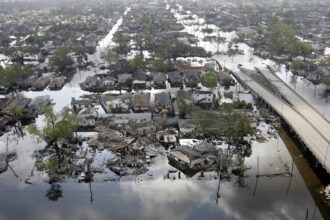It’s widely agreed that the United States has the most aggressive and successful regulations in place to conserve marine mammals. The majority of those are the result of the 53-year-old Marine Mammal Protection Act, which has helped safeguard animals such as whales, seals and otters from the detrimental impacts of fishing, pollution and overhunting.
Now, the Trump administration is more firmly laying down the hammer on other nations around the world, too. At the end of August, the National Marine Fisheries Service determined that certain fisheries in more than 40 nations do not meet marine mammal protection standards—and will not be allowed to export their catches to the U.S. until they do.
As the world’s biggest importer of fish, the U.S. holds significant sway over the global seafood market, and this decision marks a win for marine mammal conservation, environmental groups say. But some experts fear that proposed legislative changes to the Marine Mammal Protection Act (MMPA) and Trump administration layoffs at the agencies that enforce it could pose threats to these gains in the long term.
Seafood Sanctions: While the United States operates a number of its own fisheries, an estimated 80 percent of the seafood in the country is imported. This equates to more than $25 billion in seafood products from other nations annually, according to the U.S. Department of Agriculture.
That means U.S. regulatory decisions related to fisheries have ripple effects for the rest of the world. The MMPA requires the United States to ban the import of commercial fish products that result in the “incidental kill or incidental serious injury of ocean mammals in excess of U.S. standards.”
Each year, more than 650,000 whales, dolphins and other marine mammals are caught and killed in fishing gear around the world, often accidentally—becoming what’s known as “bycatch.” Even in the U.S., animals like endangered North Atlantic right whales are often entangled in lobster fishing gear, which I covered in 2024.
In 2016, the National Oceanic and Atmospheric Administration published a final rule for how to evaluate whether countries are meeting U.S. standards to protect marine mammals from fishing impacts. The agency gave other nations a five-year exemption period to compile and submit this data, which was eventually extended to 2025.
In August, NOAA’s National Marine Fisheries Service released global findings on MMPA compliance by fisheries in other countries, based on factors ranging from fishing gear types to marine mammal monitoring programs. The agency found that 89 nations, including New Zealand, Canada, Costa Rica and India, met standards across the board.
Meanwhile, certain or all fisheries in 46 nations, including Russia, Mexico, Grenada and China, did not meet MMPA regulations—or failed to submit any information. These identified fisheries will no longer be able to import seafood in the U.S. starting January 2026 until they improve marine mammal conservation in accordance with the law, according to NOAA.
“In many countries, there’s no enforcement,” Andrew Trites, the director of the marine mammal research unit at the University of British Columbia in Canada, told me. There’s a lack of research on marine mammal populations in these areas, too, “and in some cases, they’re certainly threatened, but there isn’t even the data necessary to properly document it.”
However, he said, “ignorance does not give you a pass.”
The head of NOAA Fisheries, Eugenio Piñeiro Soler, said in a press release that this round of import bans “is a major win for American workers, consumers, and our marine ecosystems.”
He added: “By enforcing these standards, we’re protecting our domestic seafood industry and ensuring only safe, sustainable seafood reaches American tables.”
A Tentative Win: Environmental groups celebrated the move, having long called for the U.S. to impose stronger restrictions on countries that violate the MMPA.
“It is high time that the United States implement this important provision of the law and penalize countries that harm so many marine mammals,” Georgia Hancock, director and senior attorney of the nonprofit Animal Welfare Institute’s marine wildlife program, said in a press release. “Marine mammals contribute immense value on a global scale—ecological, economical, and cultural—and killing them by these cruel methods must have serious consequences.”
The bans come four months after President Donald Trump issued an executive order titled “Restoring American Seafood Competitiveness,” which denounced the country’s reliance on seafood imports. The order tasked regional fishery management councils to provide updated recommendations to “reduce burdens on domestic fishing and to increase production” and directed two federal agencies to launch a strategy that promotes domestic seafood products.
Trites was “quite intrigued” by NOAA’s emphasis on bolstering the American seafood industry with this latest round of bans against countries with MMPA violations, rather than focusing more on its impact on marine mammals.
“The goal of [the MMPA] was never to make money. The goal was very pure in the sense that the world should be held to a higher standard, and that one should not be killing or injuring marine mammals in the name of profit,” he said. “But I mean, at the end of the day, frame it in terms of saving mammals or frame it in terms of increasing the value of U.S. fisheries and the economy: Marine mammals are the winners, either way you look at it.”
However, there are concerns that recent actions could jeopardize these conservation gains. The Trump administration’s proposed budget eliminated funding for an advisory body that provides independent, science-based oversight for marine mammal regulatory decisions, and the fate of this Marine Mammal Commission is still up in the air. Since January, the administration has also fired hundreds of NOAA staff members, including those who help carry out conservation efforts.
For the new import restrictions, each country has to remain in compliance. “That’s a lot of paperwork, and you’ve got an administration in-house that needs to assess this information,” Trites said. “Hopefully, they have maintained the people … that are going to make this successful.”
NOAA Fisheries did not respond when asked if the agency would have enough staff to do that work.
In a separate push, Republican U.S. Rep. Nick Begich of Alaska proposed changes to the Marine Mammal Protection Act in July to weaken some regulations, which could undermine the law’s effectiveness, Scientific American reports.
For now, though, the law remains a gold standard for marine mammal conservation, experts say.
“It’s done enormously good things for the health of marine mammals in the United States,” Trites said, “but also in other places of the world because the United States set a very high bar.”
More Top Climate News
Renewable energy is booming in China, which could help fill the gaps left by the United States in the global clean energy transition, according to a new report. Authored by the think tank Ember, the report found that exports of solar panels, batteries, electric vehicles and heat pumps from China to emerging economies are rising, providing an alternative to previously cheaper fossil fuels, Sara Schonhardt reports for E&E News.
“Policy and investment decisions made in China over the last two decades are fundamentally changing the basis of China’s own energy system, and enabling other countries to also move swiftly from fossil to clean,” Muyi Yang, coordinating lead author of Ember’s 2025 analysis, said in a statement.
Up to 30 Syrian brown bears are being kept in inadequate conditions in private homes and businesses across Armenia—and a team of environmentalists and government representatives is rushing to rescue them ahead of the upcoming climate summit in the country, Lori Youmshajekian reports for Yale Environment 360. In the early 1990s, many private homeowners and businesses held bears in captivity in Armenia as a sign of status and wealth but kept the animals in squalor, feeding them poor diets—like bread and soda—or confining them to small cages. The practice has been mostly phased out following stricter regulation and pushback from animal welfare groups and the public, but government representatives and the nonprofit Foundation for the Preservation of Wildlife and Cultural Assets have identified a few bears that still need rescuing.
In case you missed it, the U.S. Department of Agriculture is working to scrap the Roadless Rule, which protects almost 59 million acres of federal forest land from road construction and logging, as Sarah Mattalian reported for Inside Climate News. Experts say that the fast-tracked comment period—just three weeks—limits public input on the rule, which could have profound impacts for fire management and wildlife living in national forests. If you would like to submit a comment, you have until Sept. 19 and can do so here.
Postcard from … Boston

For this week’s installment of “Postcards From,” our senior editor Caroline Jones sent along a photo from a particularly interesting traffic jam in Massachusetts.
“People say cars are the cause of Massachusetts’ many traffic back-ups but have you ever considered a turkey who’s committed to standing in the middle of the road might be to blame?” Caroline wrote. “This tall tom stopped traffic on my residential street in Boston for 15 minutes on Sunday, unbothered by both honking horns and curious dogs, before eventually meandering onto the sidewalk.”
ICN staffers naturally wanted to know how a turkey ended up in the middle of a major city.
“His presence is a testament to the work of the Massachusetts Division of Fisheries & Wildlife,” Caroline explained. “The commonwealth’s original population of wild turkeys was wiped out due to habitat loss in the 19th century. MassWildlife biologists have reintroduced them over the past few decades, beginning with a group of 37 birds originally trapped in New York and rereleased in Western Massachusetts in the 1970s. Now the population hovers around 35,000!”
Today’s Climate readers, please send in your own nature photos for us to feature in our “Postcards From” section. Email them to [email protected]. We would love to see more photos from urban areas like this, where nature can thrive in unexpected places.
About This Story
Perhaps you noticed: This story, like all the news we publish, is free to read. That’s because Inside Climate News is a 501c3 nonprofit organization. We do not charge a subscription fee, lock our news behind a paywall, or clutter our website with ads. We make our news on climate and the environment freely available to you and anyone who wants it.
That’s not all. We also share our news for free with scores of other media organizations around the country. Many of them can’t afford to do environmental journalism of their own. We’ve built bureaus from coast to coast to report local stories, collaborate with local newsrooms and co-publish articles so that this vital work is shared as widely as possible.
Two of us launched ICN in 2007. Six years later we earned a Pulitzer Prize for National Reporting, and now we run the oldest and largest dedicated climate newsroom in the nation. We tell the story in all its complexity. We hold polluters accountable. We expose environmental injustice. We debunk misinformation. We scrutinize solutions and inspire action.
Donations from readers like you fund every aspect of what we do. If you don’t already, will you support our ongoing work, our reporting on the biggest crisis facing our planet, and help us reach even more readers in more places?
Please take a moment to make a tax-deductible donation. Every one of them makes a difference.
Thank you,













